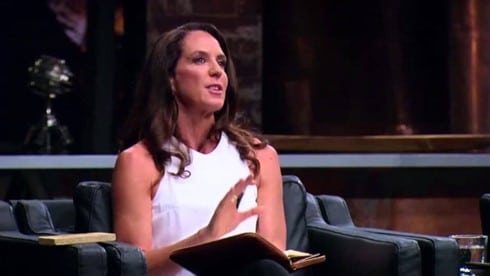Article Summary:
Many leaders are too focused on providing answers and not enough on asking great questions. On the benefits of asking questions, plus great questions leaders should ask themselves and their people.
+++
Many leaders assume that their job is to provide answers. And if they don’t, they’ll look stupid, weak, or ineffective—and harm their credibility.
These assumptions, while common, can get leaders into trouble. Of course, there are times when leaders must provide answers. But in many cases, they overlook the value of asking great questions.
Case in point: In a Harvard Business Review article, author and executive Melissa Daimler recounted the following:
“During an eventful one-on-one with my manager earlier in my career, I was busy giving my update on all the things I was working on. I said, ‘The only thing I have left to do is…’ She stopped me mid-sentence. ‘What are all of these things helping to solve in the organization?’ There it was. Boom. A powerful question. That manager illuminated my focus on getting stuff done, and the problem with not tying it back to any kind of strategic priority in the company. She went on to ask, ‘How does all of this fit together?’ Those two questions fundamentally changed how I approached my work.”
The Benefits of Asking Questions
There are many potential benefits of questioning. For leaders, asking questions can:
- help people and teams develop a deeper understanding of the context and challenges
- reduce the likelihood of misunderstandings and moving forward with untested assumptions
- expand their intelligence and problem-solving skills
- help people broaden their perspective
- give people an opportunity to stop, think, and formulate their thoughts
- demonstrate respect for the ideas and opinions of others and make team members feel valued, affirmed, and trusted
- foster broader participation in decision-making
- demonstrate commitment to understanding, clarity, and improvement
- challenge unproductive mindsets
- stimulate new ways of thinking and open up new possibilities
- get people and teams out of ruts or obsolete ways of thinking and operating
- cultivate humility
- demonstrate openness and vulnerability, which can help build mutual trust and respect
- strengthen relationships
- move them into more of a coaching role, which often leads to faster development of their team and frees the leader up for more strategic work
- help build psychological safety into the team or organization
“Questions develop people. They help people escape the trap of their mental models by broadening their perspectives…. Asking relevant questions also forces you to listen attentively to what your constituents are saying.”
-James Kouzes and Barry Posner, The Leadership Challenge
Here’s an example of the power of questioning in action: In many organizations, the way they handle recognition, appreciation, and praise ranges from boring and unoriginal to nonexistent. This is a big problem, and it warrants questioning the way it’s done in our organizations.
In their book, The Leadership Challenge, leadership authors Jim Kouzes and Barry Posner noted how one manager decided to take recognition funds and split them among fifteen people, allowing them to be creative and have fun giving out the funds the way they wanted, with the goal of encouraging the hearts of others. Some workers gave gift cards (e.g., iTunes, gas). Others took people out to lunch. Some gave unique mementos. Others created a fun new award that would hang over the desk of top-performing colleagues each month. The process was a hit for both givers and receivers—and a big improvement over the lame old ways.
What questions should leaders ask? In many cases, that’s context-dependent, but there are many. Below are examples of questions in three categories: I. Questions leaders should ask themselves; II. Questions they should ask their direct reports; and III. Questions they should ask about other stakeholders.

Leadership Derailers Assessment
Take this assessment to identify what’s inhibiting your leadership effectiveness. It will help you develop self-awareness and identify ways to improve your leadership.
I. Questions Leaders Should Ask Themselves
- What’s my purpose?
- What are my core values?
- What’s my vision?
- What are my strengths?
- What are my passions?
- What are my goals?
- Why do I want to lead?
- What are my top priorities?
- Whom do I serve?
- How best can I serve them?
- What should I start doing?
- What should I stop doing?
- What must I do better?
- What’s my contribution to the challenges we face?
II. Questions Leaders Should Ask Their Direct Reports
- What are our options in this situation?
- Are there non-obvious options or creative solutions to our current challenges?
- What do you think?
- What matters most now?
- What have you done today to collaborate with your colleagues on important work?
- What have you done lately to acknowledge the work of your colleagues?
- What are you learning now?
- Are you taking enough risks and making some mistakes that you can learn from, or are you playing it too safe?
- How are you growing and developing now?
- What more can we do to invest in your growth and future success?
- What more do you need from me and us to succeed and thrive at work?
- What do you like best about working here?
- What do you like least about working here?
- What are the biggest obstacles to your success?
- To what extent do you feel trusted?
- To what extent do you feel cared about?
- Are you confident that we have your back?
- How can I become a better leader? (1)
- How can we make our organization better?
- How can we position ourselves well for the future?
- What are our potential blind spots? What are we missing?
- What gives us the greatest return on our efforts?
- How can we grow and develop more high-performers, innovators, and leaders?
- What’s a transformative opportunity that we could pursue?
- What can we learn from our current challenge(s)?
- What if…?
- How can I help?
Good leaders don’t just ask good questions. They engage people in thoughtful and productive conversations that make people feel valued. Good leaders show they’re listening and show appreciation and respect for the input they’re receiving. These conversations involve ideas bouncing back and forth, unlocking energy between the participants.
Good leaders also avoid falling into the traps of interrupting or of answering questions automatically. For direct reports, it’s much better for them to come up with the solution themselves instead of being handed the answer by someone else.
“Ask, don’t tell.”
-Frances Hesselbein, former CEO of the Girls Scouts of the U.S.A.

Personal Values Exercise
Complete this exercise to identify your personal values. It will help you develop self-awareness, including clarity about what’s most important to you in life and work, and serve as a safe harbor for you to return to when things are tough.
III. Questions Leaders Should Ask About Other Stakeholders
- Who are our most valuable customers and partners?
- How do they perceive our work?
- What needs or wants do they have that we’re not meeting?
- Are we doing enough to learn about and from them?
- How can we leverage the ideas and resources of partners to help us achieve our goals?
- How can we contribute most effectively to our community?
Don’t Forget to Consider Who You’re Questioning
Wise leaders don’t just ask good and important questions in their team meetings. They broadcast such questions throughout the organization—and sometimes beyond it (e.g., to customers, suppliers, or industry experts)—to make sure that many different people are thinking and working things through properly.
Smart leaders develop a network of people both inside and outside the organization they can turn to with questions. As leaders, we should make sure we’re getting input from diverse perspectives both inside and outside the organization. Otherwise, the fruits of our questioning will be limited.

Alignment Scorecard
When organizations aren’t aligned, it can reduce performance dramatically and cause frustration and dysfunction. With this Alignment Scorecard, you can assess your organization’s level of alignment and make plans for improving it.
Conclusion
When leaders get in the habit of asking the kinds of questions listed here, they start building a culture of curiosity and questioning. If they listen well and create spaces where people can work through tough questions and problems together, they create a culture of psychological safety, development, and excellence. It’s a powerful thing to watch because it changes their trajectory, lifting them to new heights.
“It’s only through constant questioning that high-performance cultures can keep their competitive edge.”
-John W. Coleman, investor and writer
Reflection Questions
- What’s your question-to-answer ratio?
- Are you asking enough good questions—and often enough?
- Which new questions will you begin asking, starting today?
“Nobody ever learned anything while they were talking. Listening may well be the most underrated quality of all…. Make a conscious effort to ask more questions than you usually do, and to say 50% less for a day.”
–Janine Allis, founder, Boost Juice and Retail Zoo, investor, author

Tools for You
- Leadership Derailers Assessment to help you identify what’s inhibiting your leadership effectiveness
- Personal Values Exercise to help you determine and clarify what’s most important to you
- Alignment Scorecard to help you assess your organization’s level of alignment
Related Articles and Books
- “How to Use Questioning to Drive Innovation”
- “The Power of Dialogue for Leaders and Groups”
- “The Three Most Important Questions about Your Leadership”
- “The Three Questions Asked of Every Leader”
- “Unlock the Power of Purpose in Your Work and Leadership“
- “Why We Need More Coaching Leaders”
- “The Hazards of Advice“
- Melissa Daimler, “Listening Is an Overlooked Leadership Tool,” Harvard Business Review, May 25, 2016
- John Hagel III, “Good Leadership Is About Asking Good Questions,” Harvard Business Review, January 8, 2021
- John Maxwell, Good Leaders Ask Great Questions (Center Street, 2014)
Postscript: Quotations on Questions and Leadership
- “The ability to ask the right question is more than half the battle in finding the answer.” -Thomas J. Watson, founder and former CEO, IBM
- “The master key of knowledge is, indeed, a persistent and frequent questioning.” -Peter Abelard, medieval French philosopher
- “A prudent question is one half of wisdom.” -Francis Bacon, English philosopher and statesman
- “The leader of the future asks; the leader of the past tells.” -Peter Drucker, management and innovation expert
- “The power to question is the basis of all human progress.” -Indira Gandhi, former prime minster of India
- “You can tell whether a man is clever by his answers. You can tell whether a man is wise by his questions.” -Naguib Mahfouz, Egyptian writer and Nobel laureate
- “The important thing is not to stop questioning.” -Albert Einstein, German-born theoretical physicist
- “No one is dumb who is curious. The people who don’t ask questions remain clueless throughout their lives.” -Neil deGrasse Tyson, astrophysicist and author
- “There are no foolish questions, and no man becomes a fool until he has stopped asking questions.” -Charles Proteus Steinmetz, German-American mathematician, electrical engineer, and professor
- “…the important and difficult job is never to find the right answers, it is to find the right question. For there are few things as useless—if not dangerous—as the right answer to the wrong question.” -Peter Drucker, expert on management and innovation
- “There are no right answers to wrong questions.” -Ursula K. Le Guin, author
- “It is the highest-ranking leaders who must learn the art of humble inquiry as a first step in creating a climate of openness… the art of questioning becomes more difficult as status increases. Our culture emphasizes that leaders must be wiser, set direction, and articulate values, all of which predisposes them to tell rather than ask. Yet it is leaders who will need humble inquiry most because complex interdependent tasks will require building positive, trusting relationships with subordinates to facilitate good upward communication.” -Edgar Schein, author
(1) According to research from Alison W. Brooks, Francesca Gino, and Maurice Schweitzer, “individuals perceive those who seek advice as more competent than those who do not seek advice.”

Triple Crown Leadership Newsletter
Join our community. Sign up now and get our monthly inspirations (new articles, announcements, opportunities, resources, and more). Welcome!
+++++++++++++++++++++++
Gregg Vanourek is a writer, teacher, and TEDx speaker on personal development and leadership. He is co-author of three books, including Triple Crown Leadership: Building Excellent, Ethical, and Enduring Organizations (a winner of the International Book Awards written with his father, Bob Vanourek). Check out their Leadership Derailers Assessment or get their monthly newsletter. If you found value in this, please forward it to a friend. Every little bit helps!

